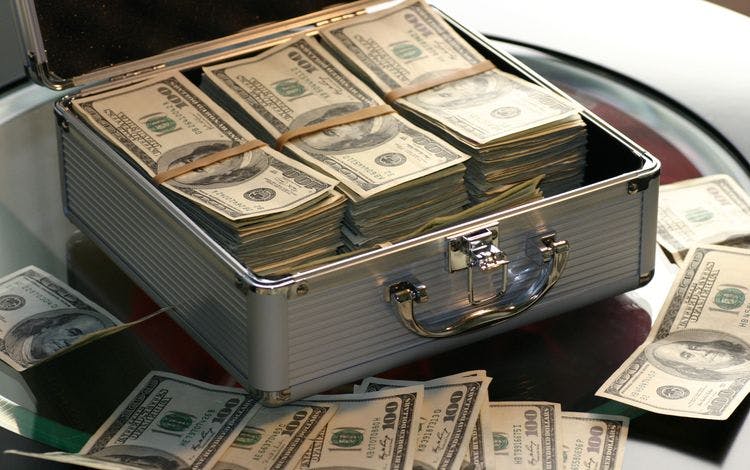Most Americans, as we've recently found out, aren't necessarily prepared for an emergency at least from a financial standpoint. Studies have shown that many have difficulty coming up with even just 400.00 in a crunch. As far as business goes, if this is your situation, you could be looking at a very difficult road ahead. This is why having sufficient cash reserves is imperative. Certainly, it's impossible to prepare for every possible crisis that can potentially emerge but having at least some monetary back up could mean the difference between failure or survival.
A cash reserve is money put aside to help you cover the larger often unexpected costs that can crop up from time to time. So rather than racking up loads of credit card debt when an emergency arises, you have money put aside specifically earmarked for just such an occasion. Generally, such money is saved in a business account.
Ideally, you will have this money in an account separate from your daily business account or your payroll account, Again, this is cash you do not want to touch save for unexpected situations. How much should you theoretically have in this type of an account…Good question! You most definitely want to ensure that there is enough in there so that you can cover whatever expense comes your way. That said, however, you also don't want to overdo it and thus hurt other areas of your business, financially speaking.
If you talk to a financial professional, they will likely suggest that anywhere between three and six months of expenses should be on hand so that you are covered if some major does happen. As we have recently seen, those with reserves available throughout the past few months more often than not had a fighting chance at making it; whereas, those with little put aside struggled in major ways. You have to assess your business, figure out what you would need to sustain you for a few months, and go from there. Look closely at overall expenses and earnings; this should give you a clearer picture of where your cash reserve needs to be. Some things to consider when trying to come up with an amount:
- Cash flow statements
- Overall budget
- Project cash flow
Many experts agree that if you have five times your expenses, this could serve to bail you out in a hurry. That however may not be possible for all small businesses. Even if you can't do 3-6 months of expenses by way of reserves, do what you can. Starting small is at least starting something.
If you need additional cash, First Union Lending is here to help. We offer a variety of loan programs all designed with small business owners in mind. And even if you're not sure you could qualify because of credit score or lack of collateral, we likely still have a product that will fit your needs. Call today!
